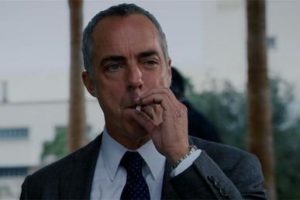
I am brushing up on my Bosch after watching the show of the same name by novelist Michael Connelly who was a crime reporter in LA, which makes his work seems very authentic.
There is nothing world changing but there are many stories and many reoccurring characters, and you can see them grow and change though their lives because the stories take place over many years of their lives. The early ones are the best (Black Ice, Black Echo, The Concrete Blond). Definitely read them chronologically. The later ones are good too, but the first 3 or 4 Bosch books are my favorite.
It’s said in introductory journalism classes that the best writing is that which doesn’t call attention to itself, and that’s the case here.
Connelly isn’t flashy prose-wise, but his characters are three-dimensional, his pacing is impeccable and has that infectious thing where you end up reading far later into the night than you initially intended, and his plots (and associated plot twists) are legitimately surprising and intriguing.
Bosch is not a warm character, though he cares in his own way. Rather he is cold, abrupt, judgmental and the ultimate pessimist.
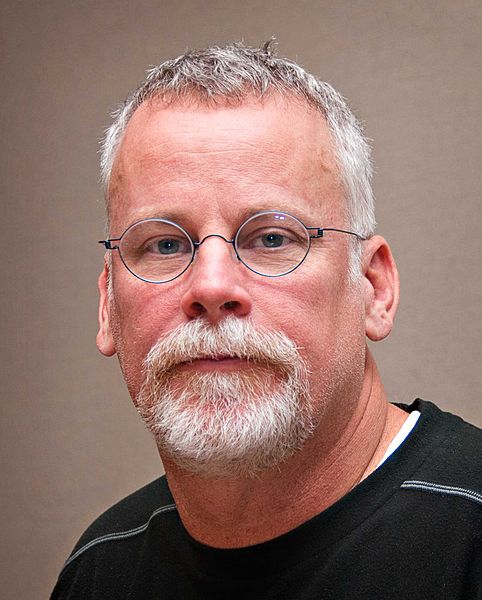
Harry Bosch sees Los Angeles the same way that his namesake Hieronymus Bosch saw The Garden of Earthly Delights – a human stew of crime and degradation. And it is role, his identity, to find and bring to justice the worst of worst, the ones who commit murder. All victims matter. Equally. Either everyone matters or no one matters, that is the conclusion he came to after the police failed to investigate the murder of Bosch’s mother because she was only a prostitute.
A cop show is a cop show. There’s only so much that can be done to vary things up, but its’ an above average cop shop. Yet, the show seems to be working hard to stay true to the books.
Connelly wrote the character so as to age ‘in real time’ – as a consequence the Harry in the first books is a good twenty years younger than the Harry in the more recent ones. As such, the way the character reacts to certain events / situations will change, as he himself changes.
They’re not ground breaking – Connelly is no Dashiell Hammett, nor is Bosch a Sam Spade for modern times. That said, they’re perfectly enjoyable, fast, reads.
As it is the series is fun for light reading, yet they still have compelling narratives.
Fans of the books going to the show, they’ve made Harry more
likable – though I found him hard to get over at first when I started reading the books.
~XO
 It’s one of the most enlightening, well-written books I’ve ever encountered in my life.
It’s a non-fiction adventure-travelogue by a rogue National Geographic explorer hiking all over the Himalayas with a mystic sherpa looking for Shangri-La, dealing with shady porters, leeches, local weirdos, sickness, and, of course, the Chinese Army.
It reads like Survivorman Les Stroud meets Rudyard Kipling crossed with Indiana Jones.
It’s pretty much my personal Bible, or would be if I were religious.
It’s one of the most enlightening, well-written books I’ve ever encountered in my life.
It’s a non-fiction adventure-travelogue by a rogue National Geographic explorer hiking all over the Himalayas with a mystic sherpa looking for Shangri-La, dealing with shady porters, leeches, local weirdos, sickness, and, of course, the Chinese Army.
It reads like Survivorman Les Stroud meets Rudyard Kipling crossed with Indiana Jones.
It’s pretty much my personal Bible, or would be if I were religious.  It’s one of the most enlightening, well-written books I’ve ever encountered in my life.
It’s a non-fiction adventure-travelogue by a rogue National Geographic explorer hiking all over the Himalayas with a mystic sherpa looking for Shangri-La, dealing with shady porters, leeches, local weirdos, sickness, and, of course, the Chinese Army.
It reads like Survivorman Les Stroud meets Rudyard Kipling crossed with Indiana Jones.
It’s pretty much my personal Bible, or would be if I were religious.
It’s one of the most enlightening, well-written books I’ve ever encountered in my life.
It’s a non-fiction adventure-travelogue by a rogue National Geographic explorer hiking all over the Himalayas with a mystic sherpa looking for Shangri-La, dealing with shady porters, leeches, local weirdos, sickness, and, of course, the Chinese Army.
It reads like Survivorman Les Stroud meets Rudyard Kipling crossed with Indiana Jones.
It’s pretty much my personal Bible, or would be if I were religious.  If you have seen Soylent Green, you’ll most certainly know “it’s people!” The film is based off of Harry Harrison’s 1966 science fiction novel Make Room. In the novel, soylent is made from soya and lentils.
Yet you will see tons of reference made to the title along with cannibal jokes. I’m pretty sure most people making the joke have never seen the film. Nor do they even know that it is based on Make Room, let along that the original novel didn’t feature cannibalism at all.
And now this…
The first time someone linked me to Soylent’s website, I seriously thought it was some promotion / ARG / viral marketing thing for a Soylent Green movie remake, modernizing the story with meal replacement shakes instead of crackers.
I honestly hoped that it was some promotion / ARG / viral marketing thing for a Soylent Green movie remake!
I think at the time you couldn’t just buy it out a store on the website, you had to sign up for a mailing list, so that helped it not look like a real product.
I’m not a fan of the name either. The name is too ingrained in popular culture to be taken seriously and it leaves a bad after taste since more people will be aware of the film than the novel.
It definitely succeeds in getting your attention and generating buzz, I’ll give it that. An interesting name,
If you have seen Soylent Green, you’ll most certainly know “it’s people!” The film is based off of Harry Harrison’s 1966 science fiction novel Make Room. In the novel, soylent is made from soya and lentils.
Yet you will see tons of reference made to the title along with cannibal jokes. I’m pretty sure most people making the joke have never seen the film. Nor do they even know that it is based on Make Room, let along that the original novel didn’t feature cannibalism at all.
And now this…
The first time someone linked me to Soylent’s website, I seriously thought it was some promotion / ARG / viral marketing thing for a Soylent Green movie remake, modernizing the story with meal replacement shakes instead of crackers.
I honestly hoped that it was some promotion / ARG / viral marketing thing for a Soylent Green movie remake!
I think at the time you couldn’t just buy it out a store on the website, you had to sign up for a mailing list, so that helped it not look like a real product.
I’m not a fan of the name either. The name is too ingrained in popular culture to be taken seriously and it leaves a bad after taste since more people will be aware of the film than the novel.
It definitely succeeds in getting your attention and generating buzz, I’ll give it that. An interesting name,  I am brushing up on my Bosch after watching the show of the same name by novelist Michael Connelly who was a crime reporter in LA, which makes his work seems very authentic.
There is nothing world changing but there are many stories and many reoccurring characters, and you can see them grow and change though their lives because the stories take place over many years of their lives. The early ones are the best (Black Ice, Black Echo, The Concrete Blond). Definitely read them chronologically. The later ones are good too, but the first 3 or 4 Bosch books are my favorite.
It’s said in introductory journalism classes that the best writing is that which doesn’t call attention to itself, and that’s the case here.
Connelly isn’t flashy prose-wise, but his characters are three-dimensional, his pacing is impeccable and has that infectious thing where you end up reading far later into the night than you initially intended, and his plots (and associated plot twists) are legitimately surprising and intriguing.
Bosch is not a warm character, though he cares in his own way. Rather he is cold, abrupt, judgmental and the ultimate pessimist.
I am brushing up on my Bosch after watching the show of the same name by novelist Michael Connelly who was a crime reporter in LA, which makes his work seems very authentic.
There is nothing world changing but there are many stories and many reoccurring characters, and you can see them grow and change though their lives because the stories take place over many years of their lives. The early ones are the best (Black Ice, Black Echo, The Concrete Blond). Definitely read them chronologically. The later ones are good too, but the first 3 or 4 Bosch books are my favorite.
It’s said in introductory journalism classes that the best writing is that which doesn’t call attention to itself, and that’s the case here.
Connelly isn’t flashy prose-wise, but his characters are three-dimensional, his pacing is impeccable and has that infectious thing where you end up reading far later into the night than you initially intended, and his plots (and associated plot twists) are legitimately surprising and intriguing.
Bosch is not a warm character, though he cares in his own way. Rather he is cold, abrupt, judgmental and the ultimate pessimist.
 Harry Bosch sees Los Angeles the same way that his namesake Hieronymus Bosch saw The Garden of Earthly Delights – a human stew of crime and degradation. And it is role, his identity, to find and bring to justice the worst of worst, the ones who commit murder. All victims matter. Equally. Either everyone matters or no one matters, that is the conclusion he came to after the police failed to investigate the murder of Bosch’s mother because she was only a prostitute.
A cop show is a cop show. There’s only so much that can be done to vary things up, but its’ an above average cop shop. Yet, the show seems to be working hard to stay true to the books.
Connelly wrote the character so as to age ‘in real time’ – as a consequence the Harry in the first books is a good twenty years younger than the Harry in the more recent ones. As such, the way the character reacts to certain events / situations will change, as he himself changes.
They’re not ground breaking – Connelly is no Dashiell Hammett, nor is Bosch a Sam Spade for modern times. That said, they’re perfectly enjoyable, fast, reads.
As it is the series is fun for light reading, yet they still have compelling narratives.
Fans of the books going to the show, they’ve made Harry more likable – though I found him hard to get over at first when I started reading the books.
~XO
Harry Bosch sees Los Angeles the same way that his namesake Hieronymus Bosch saw The Garden of Earthly Delights – a human stew of crime and degradation. And it is role, his identity, to find and bring to justice the worst of worst, the ones who commit murder. All victims matter. Equally. Either everyone matters or no one matters, that is the conclusion he came to after the police failed to investigate the murder of Bosch’s mother because she was only a prostitute.
A cop show is a cop show. There’s only so much that can be done to vary things up, but its’ an above average cop shop. Yet, the show seems to be working hard to stay true to the books.
Connelly wrote the character so as to age ‘in real time’ – as a consequence the Harry in the first books is a good twenty years younger than the Harry in the more recent ones. As such, the way the character reacts to certain events / situations will change, as he himself changes.
They’re not ground breaking – Connelly is no Dashiell Hammett, nor is Bosch a Sam Spade for modern times. That said, they’re perfectly enjoyable, fast, reads.
As it is the series is fun for light reading, yet they still have compelling narratives.
Fans of the books going to the show, they’ve made Harry more likable – though I found him hard to get over at first when I started reading the books.
~XO 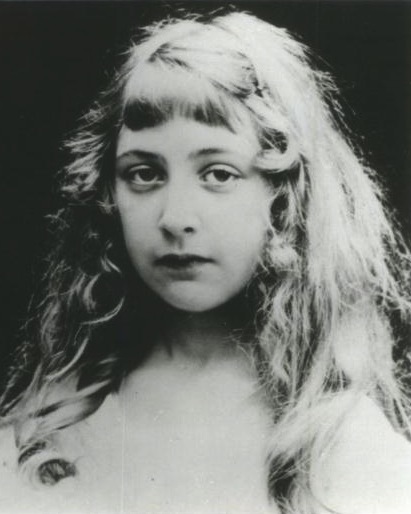 I love Agatha Christie, I have been reading since I was a kid. Not that they came out when I was a kid mind you!
For me, Poirot will always be number 1 because of his heart, and his flaws.
He’s extremely observant and has a profound understanding of human behavior but he’s also immensely compassionate. Sherlock Holmes was brilliant at interpreting physical and materialistic evidence but Poirot was a master at understanding people’s thought processes using astute psychology and intuition. He can interact with victims, suspects and murderers in a way that probably wouldn’t occur to e.g. Holmes.
No offence to Sherlock, but Poirot’s game is to not just catch the culprit but to clear and support the ones who are innocent and who have to go on living with what’s happened. He never hesitates to talk about hope, faith and redemption, and that sets him apart to me. And it’s remarkable how he manages to be so kind and so (often comically) arrogant at the same time.
Poirot makes for a much more engaging and stimulating murder mystery for me.
And for fans of the series it is always rewarding when Poirot explains how he made progress in the investigation at the conclusion of each book spot on.
I haven’t read the books in a very long time but I think Agatha Christie’s Poirot relied heavily on characters to solve the murder and thus we were often left in awe of how well Poirot understood what went on in people’s mind, an arduous task to say the least, and how he sometimes used what he knew to artfully extract information instead of any scientific knowledge be it by: chemistry, anatomy, or any of his other abilities.
I also like how he is an outsider in more than one respect. He is obviously very much alone “at the top” with his cognitive abilities but it’s interesting how he is originally also a refugee of WW1 and how he subsequently sets up his practice in London. How he approaches English society. The language, the customs, the laws, and how he befriends Hastings, Lemon, Japp and Ariadne. It’s very much a success story and he’s a perfect character to drop into vastly different contexts.
I love Agatha Christie, I have been reading since I was a kid. Not that they came out when I was a kid mind you!
For me, Poirot will always be number 1 because of his heart, and his flaws.
He’s extremely observant and has a profound understanding of human behavior but he’s also immensely compassionate. Sherlock Holmes was brilliant at interpreting physical and materialistic evidence but Poirot was a master at understanding people’s thought processes using astute psychology and intuition. He can interact with victims, suspects and murderers in a way that probably wouldn’t occur to e.g. Holmes.
No offence to Sherlock, but Poirot’s game is to not just catch the culprit but to clear and support the ones who are innocent and who have to go on living with what’s happened. He never hesitates to talk about hope, faith and redemption, and that sets him apart to me. And it’s remarkable how he manages to be so kind and so (often comically) arrogant at the same time.
Poirot makes for a much more engaging and stimulating murder mystery for me.
And for fans of the series it is always rewarding when Poirot explains how he made progress in the investigation at the conclusion of each book spot on.
I haven’t read the books in a very long time but I think Agatha Christie’s Poirot relied heavily on characters to solve the murder and thus we were often left in awe of how well Poirot understood what went on in people’s mind, an arduous task to say the least, and how he sometimes used what he knew to artfully extract information instead of any scientific knowledge be it by: chemistry, anatomy, or any of his other abilities.
I also like how he is an outsider in more than one respect. He is obviously very much alone “at the top” with his cognitive abilities but it’s interesting how he is originally also a refugee of WW1 and how he subsequently sets up his practice in London. How he approaches English society. The language, the customs, the laws, and how he befriends Hastings, Lemon, Japp and Ariadne. It’s very much a success story and he’s a perfect character to drop into vastly different contexts.
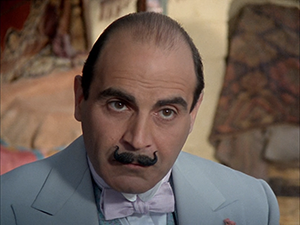 David Suchet is my favorite actor in this role, by the way. I think he nails both Poirot’s stern and warm sides, and he can convincingly play him as both passionate and subtle. I also love the humor and relationships between him, Japp and Hastings.
Poirot often worked without evidence, clues, patterns, and tracks and also solved crimes without visiting the crime scene and I can’t say the same for Holmes. Also, I personally don’t believe any of Sherlock’s best plots were nearly as intricate as Poirot’s best.
But this is probably a personal bias.
~XO
David Suchet is my favorite actor in this role, by the way. I think he nails both Poirot’s stern and warm sides, and he can convincingly play him as both passionate and subtle. I also love the humor and relationships between him, Japp and Hastings.
Poirot often worked without evidence, clues, patterns, and tracks and also solved crimes without visiting the crime scene and I can’t say the same for Holmes. Also, I personally don’t believe any of Sherlock’s best plots were nearly as intricate as Poirot’s best.
But this is probably a personal bias.
~XO
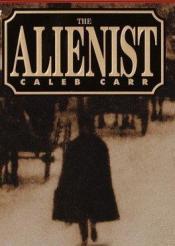 When I first meet the Alienist it was in the form of previews for the Netflix show that was running on TNT. I thought to myself: Looks good. Victorian. Creepy. Good cast. Good looking sets. And no doubt in 4k too.
So I have yet to see the series, but I decided to pick up the book.
I am arriving at the conclusion that I am no longer reading this book because I enjoy it, but because I have sunk enough time into it so I may as well finish it.
Alright, don’t get me wrong, it is a page turner and the time flies when I am reading it, but I just have way too many problems with it to completely suspend my belief and immerse myself into the world of the book.
If you don’t want to read through a post where I complain about things, turn back now. If you do, then without any more delay let me jump right into the three things that stood out to me the most while I have been reading The Alienist:
First, considering this book’s premise is deductive psychological work being used to find a killer it is really fishy that the big break comes from a random occurrence.
This is usually a sign that the author did not know how to believably move the story forward with the chosen method. It is a gimmick, as if fate, or in this case the author, had decided to toss the detectives a bone. And when the author needs to go about setting things up, just so that the protagonist could get a random piece of information that just points to the killer like a giant billboard sized arrow you know that you have a problem with your logic.
There is an attempt to make it sound like they were using their skills to decide if this was a real break, by contacting their detective friends, but those detective friends gave no reason why they thought this specific piece of data was important. So in essence neither the location of the break nor the subsequent justification for the break being deemed valid, has much to do with serious deducting work we were previously exposed to.
Second, and this may be because this topic has been a popular one on some of the places I get my book news, is violence against women. We have two prominent female characters and both of them have a history of sexual abuse, and one is even killed to push a male protagonist’s story forward.
I have written about my dislike of Sara being a strange emotionally volatile character that jumps to anger if her gender is insulted, but what is her real purpose in the narrative?
This becomes more of a problem when she offers advice to Lazlo.
Lazlo said he wanted her ‘female perspective’ yet he ignores the information she provides. And the other woman is a love interest that is later killed for the sake of dramatic value.
Are the female characters in this book independent individuals or stage decorations for the men who are the real actors?
I would say that it is the latter.
Which is very unfortunate.
Third, although this is tightly tied with the previous section, is the treatment of side characters who are women.
I won’t speak of the mother of one of the victims or the madam at one of the whorehouses, but I will point out the mother of our murderer. There is a very long info dump on the abuse that the killer experienced from his mother when he was a child.
This is the the abuse that had made him the monster that he is. It is the driving force behind his actions. And you could argue that it is use in part as justification. Yet the abuse that the mother suffered at the hands of her husband, is swept under the rug. If we are supposed to feel empathy towards the killer, because he was denied a human upbringing, where is the call for empathy for his mother?
You won’t find it.
At this point I am certain that I will not continue the series.
The bottom line is that what I wanted from this book has turned out to be stage decorations, rather than the main focus, and I really do not care to read any more stories set in this world.
There are other authors I want to try, and be disappointed by.
~XO
When I first meet the Alienist it was in the form of previews for the Netflix show that was running on TNT. I thought to myself: Looks good. Victorian. Creepy. Good cast. Good looking sets. And no doubt in 4k too.
So I have yet to see the series, but I decided to pick up the book.
I am arriving at the conclusion that I am no longer reading this book because I enjoy it, but because I have sunk enough time into it so I may as well finish it.
Alright, don’t get me wrong, it is a page turner and the time flies when I am reading it, but I just have way too many problems with it to completely suspend my belief and immerse myself into the world of the book.
If you don’t want to read through a post where I complain about things, turn back now. If you do, then without any more delay let me jump right into the three things that stood out to me the most while I have been reading The Alienist:
First, considering this book’s premise is deductive psychological work being used to find a killer it is really fishy that the big break comes from a random occurrence.
This is usually a sign that the author did not know how to believably move the story forward with the chosen method. It is a gimmick, as if fate, or in this case the author, had decided to toss the detectives a bone. And when the author needs to go about setting things up, just so that the protagonist could get a random piece of information that just points to the killer like a giant billboard sized arrow you know that you have a problem with your logic.
There is an attempt to make it sound like they were using their skills to decide if this was a real break, by contacting their detective friends, but those detective friends gave no reason why they thought this specific piece of data was important. So in essence neither the location of the break nor the subsequent justification for the break being deemed valid, has much to do with serious deducting work we were previously exposed to.
Second, and this may be because this topic has been a popular one on some of the places I get my book news, is violence against women. We have two prominent female characters and both of them have a history of sexual abuse, and one is even killed to push a male protagonist’s story forward.
I have written about my dislike of Sara being a strange emotionally volatile character that jumps to anger if her gender is insulted, but what is her real purpose in the narrative?
This becomes more of a problem when she offers advice to Lazlo.
Lazlo said he wanted her ‘female perspective’ yet he ignores the information she provides. And the other woman is a love interest that is later killed for the sake of dramatic value.
Are the female characters in this book independent individuals or stage decorations for the men who are the real actors?
I would say that it is the latter.
Which is very unfortunate.
Third, although this is tightly tied with the previous section, is the treatment of side characters who are women.
I won’t speak of the mother of one of the victims or the madam at one of the whorehouses, but I will point out the mother of our murderer. There is a very long info dump on the abuse that the killer experienced from his mother when he was a child.
This is the the abuse that had made him the monster that he is. It is the driving force behind his actions. And you could argue that it is use in part as justification. Yet the abuse that the mother suffered at the hands of her husband, is swept under the rug. If we are supposed to feel empathy towards the killer, because he was denied a human upbringing, where is the call for empathy for his mother?
You won’t find it.
At this point I am certain that I will not continue the series.
The bottom line is that what I wanted from this book has turned out to be stage decorations, rather than the main focus, and I really do not care to read any more stories set in this world.
There are other authors I want to try, and be disappointed by.
~XO 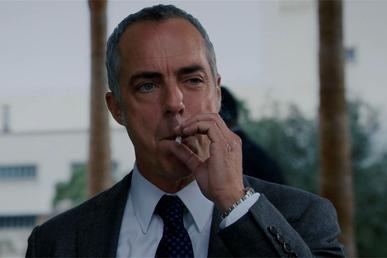 I know that season V is in the works, and I see a lot of potential to fall into the trap that season II & III did. That was the action aspect. Drawing on his military career.
Aside from being a tunnel rat we don’t know what happend to him in the war. And I am fine with that, it worked well in season I to hint about it since it fit into the world and the case that he was trying to solve.
With the death of Elenor I feel like they may be trying to take it back into an action Harry direction (original show runner is also coming back from season I-III).
Let Harry be a cop. There’s plenty of trauma and drama right there.
Don’t make him take on the world.
I know that season V is in the works, and I see a lot of potential to fall into the trap that season II & III did. That was the action aspect. Drawing on his military career.
Aside from being a tunnel rat we don’t know what happend to him in the war. And I am fine with that, it worked well in season I to hint about it since it fit into the world and the case that he was trying to solve.
With the death of Elenor I feel like they may be trying to take it back into an action Harry direction (original show runner is also coming back from season I-III).
Let Harry be a cop. There’s plenty of trauma and drama right there.
Don’t make him take on the world.